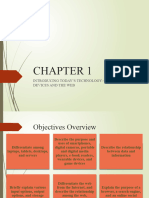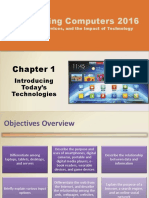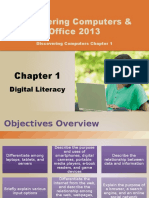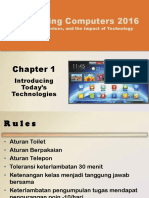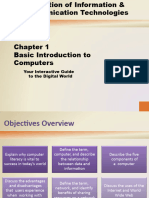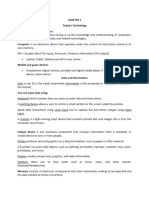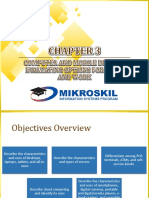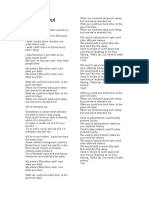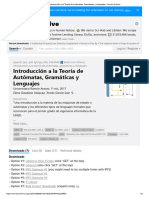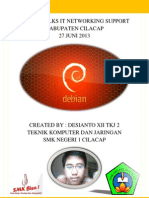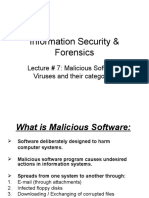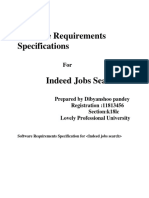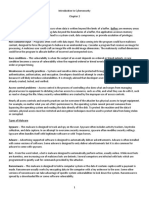0% found this document useful (0 votes)
117 views36 pagesChapter 1
This document discusses different types of technology including computers, mobile devices, the internet, and applications. It describes computers and their components, how data is input and output, and different types of storage. It also explains the relationship between the internet and the world wide web, how browsers and search engines work, and examples of communication technologies and networks. Finally, it discusses how technology is used in various sectors of society and profiles different types of technology users.
Uploaded by
Kelvin JunusCopyright
© © All Rights Reserved
We take content rights seriously. If you suspect this is your content, claim it here.
Available Formats
Download as PDF, TXT or read online on Scribd
0% found this document useful (0 votes)
117 views36 pagesChapter 1
This document discusses different types of technology including computers, mobile devices, the internet, and applications. It describes computers and their components, how data is input and output, and different types of storage. It also explains the relationship between the internet and the world wide web, how browsers and search engines work, and examples of communication technologies and networks. Finally, it discusses how technology is used in various sectors of society and profiles different types of technology users.
Uploaded by
Kelvin JunusCopyright
© © All Rights Reserved
We take content rights seriously. If you suspect this is your content, claim it here.
Available Formats
Download as PDF, TXT or read online on Scribd
/ 36
